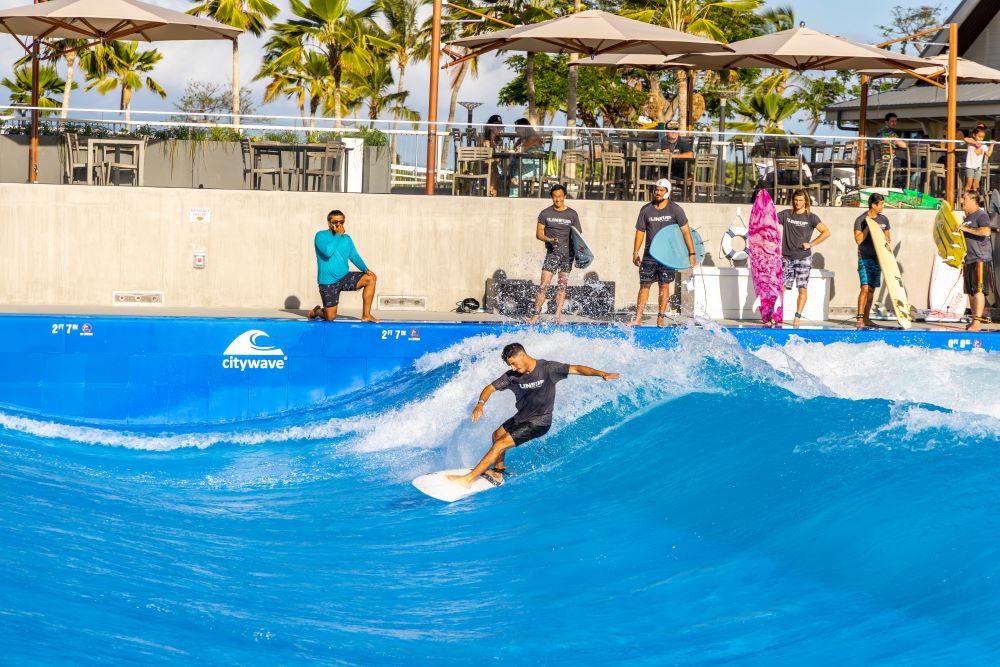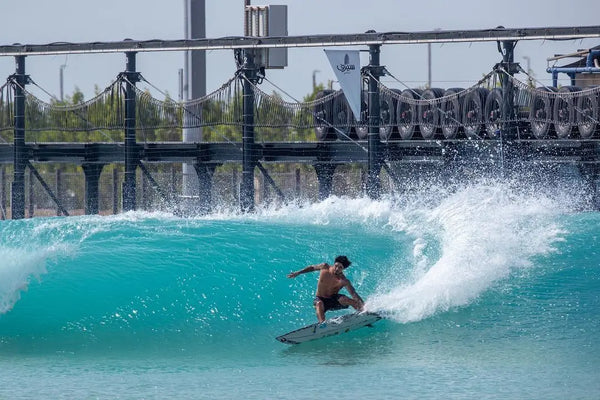Freshwater Versus Saltwater—the Wave Pool Dilemma
Share
Wave pools are all the rage these days.
They are popping up all over the place—even in areas that have lots of natural waves, like right here on Oahu (speaking of which, has anyone tried out the Wai Kai wave pool yet?).

They are all over Australia and the US, including in Melbourne, Brisbane, Waco, and of course Lemoore. They are also popping up in Europe (where Wavegardens are quite popular), Brazil, and even China (where the government has built a rip-off version of Slater’s Surf Ranch for their Olympic surf team to train in).
While these pools all use different technologies and produce different types of waves, they have one thing in common—none of them are saltwater pools. People might wonder why wave pools—which are ostensibly trying to recreate the surf experience—would opt for freshwater instead of saltwater. In reality, there’s a very good reason, and that’s corrosion.
Anyone who works in the maritime industry—whether on boats, docks, oil rigs, or any other form of oceanic construction—will tell you that saltwater is one of the most corrosive substances on the planet. What many people don’t realize is that this corrosiveness is a product of chemical changes that happen due to the ability of dissolved salt ions to conduct electricity, particularly to metal substances.
This conduction of electricity across different materials causes the salt ions to “steal” electrons from metals, which results in corrosion, typically in the form of some type of rust. (For those interested in human health, this is similar to the process that happens in the body, where oxidation causes the breakdown in cells that ultimately result in aging and disease. Foods with antioxidants, such as blueberries, contain an extra electron that offsets the negatively charged ions in oxygen). While certain types of metals have been created specifically to combat corrosion, they are not fool-proof, and eventually everything succumbs to the power of the ocean. (For evidence of this, look at the thousands of shipwrecks around the world, which are all just big piles of rusted metal.)
Wave pools make their money from staying open and providing waves to people, so anything that causes them to be shut down for maintenance is a money suck. And while freshwater also causes corrosion (especially when it has to be chlorinated in order to keep people safe), it does so at a much slower rate than saltwater, which means less metal parts to be replaced and less downtime at the pool.
This explains why most wave pools use freshwater rather than saltwater. But wait! Things might be changing. Kelly Slater unveiled his Surf Ranch 2.0 in Abu Dhabi last week, with a bunch of former world champs visiting him to break the pool in. In addition to featuring an endless barrel section, there are rumors that the pool might also be using saltwater!

@surfabudhabi
On Instagram, someone commented that it must be difficult to find enough freshwater in a desert environment like Abu Dhabi to support a wave pool (not to mention the environmental ramifications of using that much freshwater), but Slater responded publicly that the pool is actually using water from the ocean. We aren’t sure how the pool works (whether it is using desalinized saltwater, or simply reinforced materials that can handle the salty corrosion), but if Slater is to be believed, his new pool just might be the first one with water that tastes like the ocean. Sign us up!

1 comment
so why don’t use another material for water pumps? graphene? too expensive maybe, but anotther kinde of plastic…